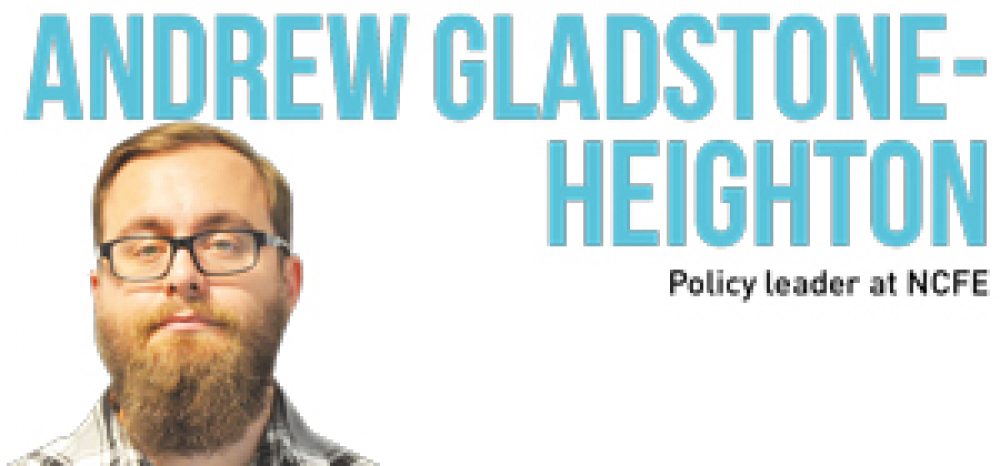Ofqual recently outlined its plans for closing the unit databank as part of its ongoing work to withdraw the regulatory arrangements for the Qualification and Credit Framework (QCF). Andrew Gladstone-Heighton outlines his concerns.
Just to make it clear at the outset; I’ve been in the sector long enough to remember the introduction of the QCF (which means my FE career has now outlived two qualifications frameworks), so I’m fully aware that the QCF is in need of some reform.
However, from reading their plans, there are a number of things that need to be taken into consideration about what the proposals outlined will mean for the sector.
I do agree that removal of some the restrictions of the shared unit databank (and the regulatory arrangements of the QCF in general) will enable awarding organisations (AOs) to provide more creative and innovative responses to employer and learners needs — this is where AOs really add value to our qualification framework.
However, we have to bear in mind that this has been published in the middle of an ongoing Ofqual consultation, and following a period of intense and ongoing reform for vocational qualifications. Having previously set out their aspiration to withdraw the QCF rules in the 2015/16 session; I can’t help but get the impression that these reforms are being rushed through.
As they are currently set out by Ofqual, any changes or restrictions to AO accessing the unit databank may, in my opinion, lead to a situation where qualifications may have to be redeveloped as the shared content within them may be restricted to the original unit submitting body, should they choose to withdraw their content.
I can’t help but get the impression that these QCF reforms are being rushed through
While it’s currently unclear as to whether this would mean the qualification would have to be resubmitted to the Ofqual register (with the new Qualification Accreditation Number that this usually entails), it may mean that learners and other stakeholders will face further changes to qualifications they are interested in studying.
There may be disruption in the qualifications available to learners as some component units of qualifications are no longer ‘available’ as shared units.
Also of concern is a potential increase in the volume of units available, as a version of each (now shared) unit becomes owned by each AO that offers it. Transferability between qualifications (a key concept of the QCF that I strongly support) may become harder to achieve as a consequence, as they will no longer be made up of transferable common content. This will place additional burdens on providers, AOs and employers when agreeing to and recognising any prior learning.
I have concerns, shared by SquareOneLaw, that the disentanglement of ‘ownership’ of shared and co-created units currently on the unit bank introduces the potential complexities posed by possession (or otherwise) of Intellectual Property Rights (IPR). While it is acknowledged that IPR cannot be retrospectively attached to a product, there is no doubt some AOs may feel somewhat aggrieved that their hard work and financial investment channelled into shared unit development may now not be rewarded with reciprocal rewards, should some AOs choose to withdraw their content.
It is highly unlikely that small to medium-sized AOs have the appetite or the resources to fight one another over ownership. Ideally, we would want an industry-wide solution with perhaps contractual agreements between AOs and/or an open source arrangement, perhaps with Ofqual’s facilitation.
Another thing that is currently unclear is to what extent Ofqual’s reforms have been linked to the various funding agencies’ plans for qualification approval. From what I’ve heard, Ofqual is working with the relevant agencies where appropriate, and it would be a missed opportunity to align a new qualifications and unit funding system with the removal of shared units and withdrawal of the QCF rules more widely.
All of this may seem quite geeky and technical to the layperson, but if we are to secure confidence in vocational qualifications as a rigorous and responsive high quality alternative to academia with employers, learners and policy makers, then I fear the some of the unanswered questions above may undermine this noble aspiration.



Your thoughts